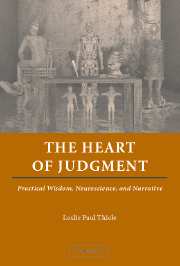5 - The Riches of Narrative
Published online by Cambridge University Press: 20 July 2009
Summary
To raise the question of the nature of narrative is to invite reflection on the very nature of culture and, possibly, even on the nature of humanity itself.
Hayden WhiteI am always at a loss to know how much to believe of my own stories.
Washington IrvingThere is nothing we are more certain about than our sense of self. However confounding the world around us, however confused we may be about particular judgments, we rest assured – at the least – that there is a self being perplexed. Cogito, ergo sum, Descartes announced in an effort to disabuse himself and fellow philosophers of uncertainty: I think, therefore I am. While one may doubt a great deal in life, Descartes discovered, one cannot doubt that there is, minimally, a self engaged in doubting.
For most of us, the self is a stable and enduring entity. To be sure, the notion of the self has an abstract quality about it. We cannot locate the self precisely, and we do not well understand its origins, constitution, or development. But to deny the reality of the self is to court psychological and social disintegration. From well before the time we were able to think in abstract terms, the self asserted itself in our lives as an omnipresent force. It served as a fulcrum for our explorations and a foundation for our experiences.
Notwithstanding its ubiquitous presence in our lives, the self has no transcendental nature, no essence.
- Type
- Chapter
- Information
- The Heart of JudgmentPractical Wisdom, Neuroscience, and Narrative, pp. 201 - 276Publisher: Cambridge University PressPrint publication year: 2006



